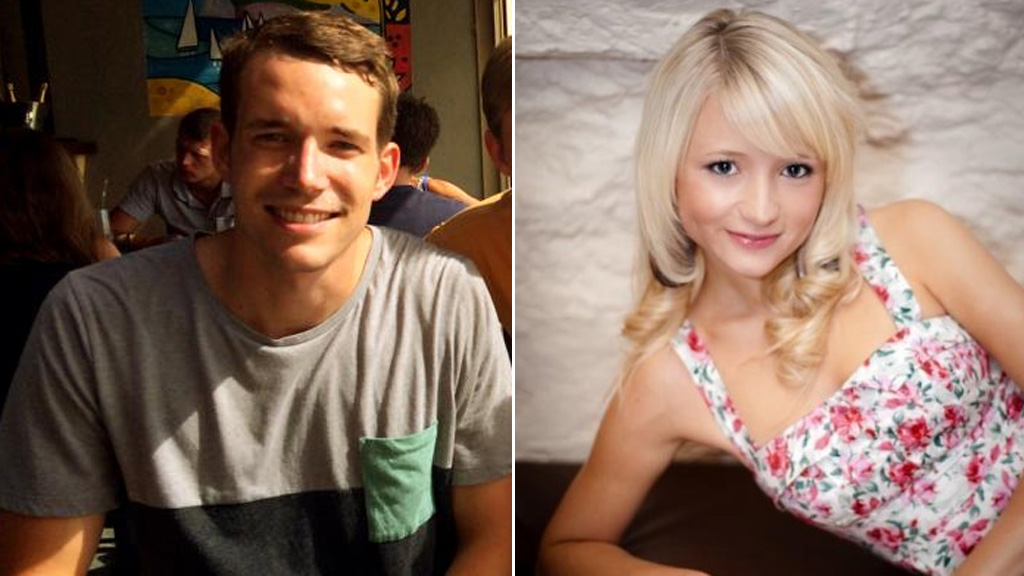UK backpackers’ alleged murderers carry out reconstruction
Two Burmese men – who are said to have confessed to murdering British backpackers in Thailand last month – are sent to Koh Tao beach for a reconstruction of the crime.
The suspects, identified as 21-year olds Tay Win and Zoe, were escorted by police officers and wore safety vests and helmets in case of lynching by onlookers on the island.
The bodies of David Miller, 24, and Hannah Witheridge, 23, were discovered on a beach on the island of Koh Tao, or Turtle Island, on 15 September close to the hotel where they were staying.
The arrests follow weeks of pressure on police to solve the murders, and growing criticism levelled at authorities over the quality of their investigation.
“These two suspects are the ones who committed the crime that day. At the same time the suspects admitted that they are the real culprits, so today we have brought both to do a reconstruction to confirm that police did their duty correctly,” said Thai police chief Somyot Poompunmoung.

Mr Somyot said that the suspects had told officers they were drunk when they saw the two British tourists on the beach.
With the Thai police criticised over their handling of the case, Mr Somyot insisted he was confident officers had caught the right suspects.
“Looking at the DNA results, we have tested that the DNA of these two match the DNA found in the deceased. There was also a mobile, a guitar and a motorcycle used to do the crime. The mobile phone was the mobile of the victim which the suspects took it to destroy. Police were able to confiscate these,” he said.
Migrant workers, particularly those from Myanmar, are often used as scapegoats for crimes in Thailand.

The high-profile rape and murder of 23-year-old Welsh backpacker Kirsty Jones in 2000 was blamed on an ethnic Karen guide from neighbouring Myanmar who was beaten by police in an attempt to coerce a confession.
The case was handed over to the Department of Special Investigation, Thailand’s version of the FBI. Despite a number of arrests, no charges have ever been brought over her death.
Thailand hosts around 2.5 million migrants from neighbouring countries including Myanmar, Laos and Cambodia. Many perform the jobs most Thais are unwilling to do in the fishing, agriculture and construction industries. Many work as domestic helpers.